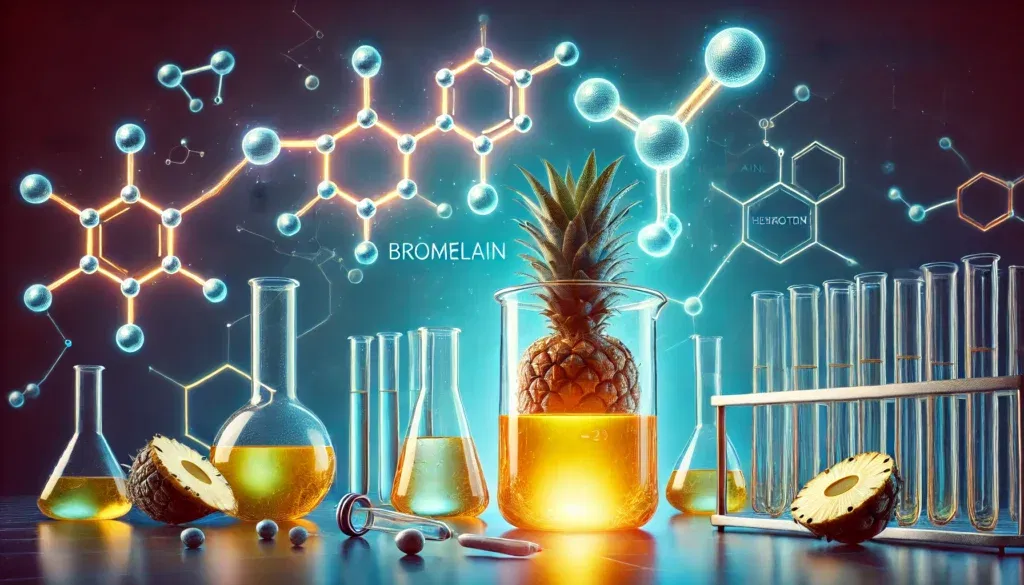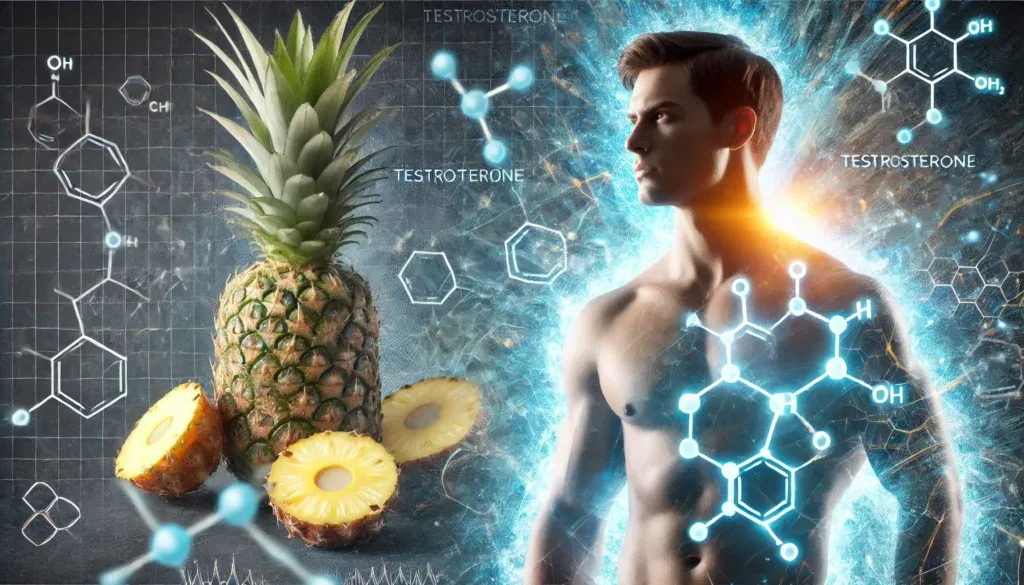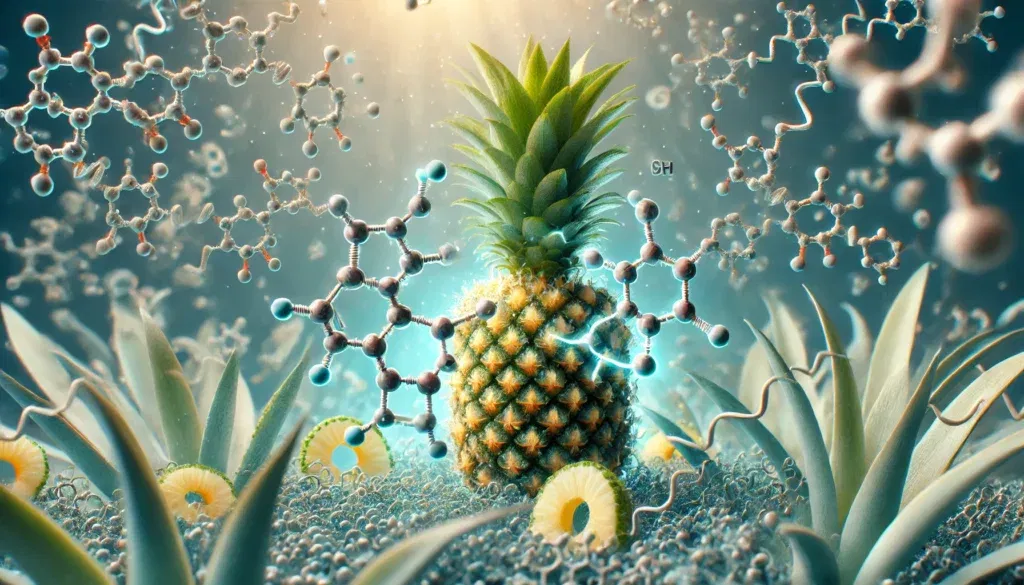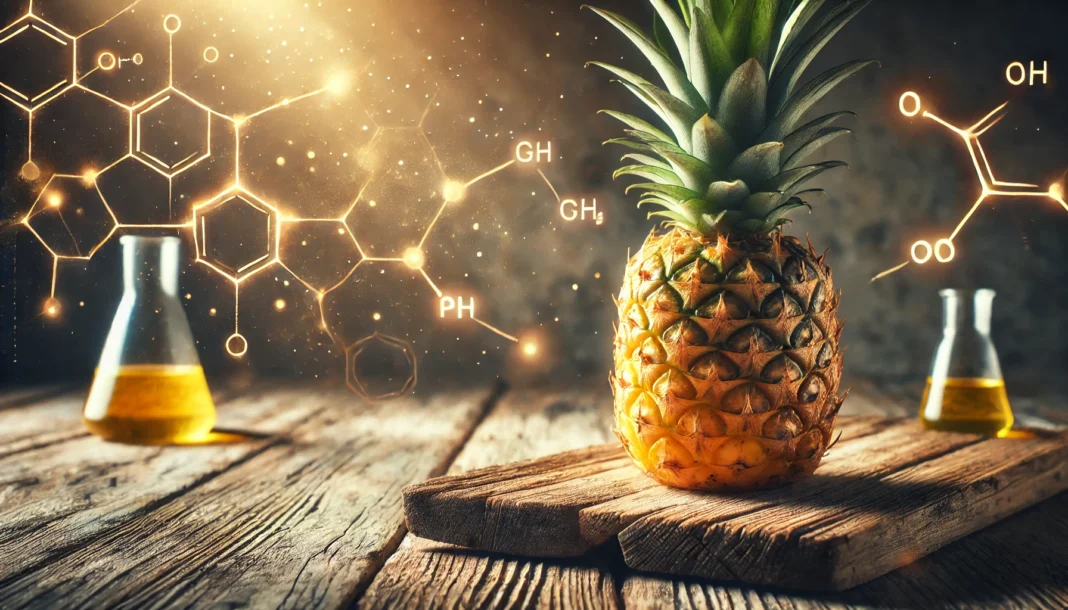Testosterone plays a crucial role in male health, influencing muscle mass, bone density, mood, and overall vitality. For those looking to optimize hormone levels, diet is often a primary focus, with protein intake frequently discussed in relation to testosterone production. Many individuals wonder: does protein increase testosterone? This article delves into the intricate relationship between dietary protein and testosterone levels, examining the latest scientific research, biological mechanisms, and practical applications for those seeking hormonal balance.
You may also like: How to Increase Testosterone Levels Naturally: Science-Backed Strategies for Men’s Health & Longevity
Understanding Testosterone and Its Importance in Male Health
Testosterone is the primary androgenic hormone responsible for various physiological functions. It is crucial for muscle growth, fat metabolism, bone density, libido, and cognitive health. Produced predominantly in the testes in men and in smaller amounts in the adrenal glands and ovaries in women, testosterone synthesis is regulated by the hypothalamic-pituitary-gonadal (HPG) axis. Any imbalance in this system can result in decreased testosterone levels, leading to fatigue, reduced muscle mass, and even mood disorders.
A multitude of factors influence testosterone levels, including age, genetics, lifestyle, exercise, and nutrition. Among these, protein intake has been widely studied for its potential role in supporting optimal testosterone levels. The body requires essential amino acids, the building blocks of protein, to sustain various metabolic processes, including the production of hormones like testosterone. However, the relationship between dietary protein and testosterone is more complex than a simple direct correlation.

How Protein Affects Testosterone Production
Protein is a fundamental macronutrient that supports muscle growth and tissue repair. It also plays a role in hormone synthesis, including the production of testosterone. Several mechanisms explain how protein intake may influence testosterone levels:
- Amino Acids and Testosterone Synthesis: Testosterone is synthesized from cholesterol, a lipid molecule, but the enzymes that regulate this process rely on sufficient protein intake. Specific amino acids such as leucine, arginine, and glutamine contribute to anabolic processes that can indirectly support testosterone production.
- Impact on Cortisol Levels: Cortisol, the body’s primary stress hormone, has an inverse relationship with testosterone. High protein diets, particularly those rich in lean meats and plant-based sources, may help regulate cortisol levels. When cortisol is elevated due to chronic stress or inadequate nutrition, testosterone production can suffer. Thus, maintaining adequate protein intake may help mitigate cortisol spikes that suppress testosterone levels.
- Influence on Muscle Mass and Physical Activity: Higher protein intake is essential for muscle synthesis and repair. Resistance training is one of the most effective ways to boost testosterone, and protein consumption plays a crucial role in post-exercise recovery. Consuming adequate protein ensures that the body has the necessary building blocks to sustain muscle hypertrophy and hormonal balance.
The Optimal Protein Intake for Testosterone Support
The amount of protein needed for optimal testosterone levels varies depending on age, activity level, and overall health status. General recommendations suggest that moderately active individuals should consume 0.6 to 1.0 grams of protein per pound of body weight. However, those engaged in intense resistance training or endurance sports may require higher amounts.
Studies indicate that consuming excessive protein at the expense of other macronutrients, particularly healthy fats, may reduce testosterone levels. Since testosterone is synthesized from cholesterol, a diet excessively skewed toward protein while lacking in dietary fats could negatively impact hormone production. Balancing protein intake with healthy fats and carbohydrates is essential for maintaining optimal testosterone levels.
Animal vs. Plant-Based Proteins: Which is Better for Testosterone?
Both animal and plant-based protein sources provide essential amino acids necessary for overall health and muscle maintenance. However, their effects on testosterone may differ:
- Animal Proteins: Sources such as beef, eggs, poultry, and fish contain high biological value protein and essential nutrients like zinc, vitamin D, and omega-3 fatty acids, all of which contribute to testosterone synthesis. Red meat, in particular, is rich in saturated fats, which can support testosterone production when consumed in moderation.
- Plant-Based Proteins: Legumes, nuts, seeds, and whole grains provide adequate protein but often lack certain essential amino acids found in animal sources. Some plant-based foods, such as soy products, contain phytoestrogens that may influence testosterone levels. While moderate soy intake does not appear to significantly lower testosterone, excessive consumption should be approached cautiously.
A well-balanced diet incorporating both animal and plant-based protein sources is ideal for sustaining testosterone levels while supporting overall health.
The Role of Protein Timing and Distribution in Testosterone Regulation
Beyond total protein intake, meal timing and distribution play an important role in hormone regulation. Spacing protein consumption evenly throughout the day ensures a continuous supply of amino acids for muscle repair and metabolic function. Additionally, consuming protein-rich meals after exercise can enhance muscle recovery and promote favorable testosterone levels.
Intermittent fasting and meal timing strategies have also been studied for their impact on testosterone. Some research suggests that fasting periods followed by protein-rich meals may enhance testosterone response due to increased luteinizing hormone (LH) secretion, a key regulator of testosterone production. However, prolonged fasting and severe caloric restriction can suppress testosterone levels due to increased cortisol production and energy deficits.
The Connection Between Protein and Other Nutrients for Testosterone Optimization
Protein alone is not the sole determinant of testosterone levels. Several micronutrients work in tandem with protein to support hormone production:
- Zinc: Found in high-protein foods such as red meat, shellfish, and seeds, zinc is essential for testosterone synthesis. Deficiencies can lead to suppressed testosterone levels and impaired reproductive function.
- Vitamin D: Fatty fish, egg yolks, and fortified dairy products contain vitamin D, which plays a direct role in regulating testosterone.
- Magnesium: Found in leafy greens, nuts, and whole grains, magnesium aids in muscle function and testosterone regulation by reducing oxidative stress.
- Healthy Fats: Testosterone is derived from cholesterol, making dietary fats crucial. Avocados, olive oil, nuts, and fatty fish provide essential lipids needed for hormone synthesis.
Ensuring a balanced intake of these nutrients alongside protein can enhance testosterone production and overall metabolic health.
Potential Risks of Excessive Protein Intake on Testosterone Levels
While protein is necessary for maintaining muscle and hormonal function, excessive intake can have unintended consequences. Very high protein diets that significantly reduce fat and carbohydrate intake can lead to hormonal imbalances. Research suggests that an overreliance on protein at the expense of dietary fat may lower free testosterone levels by reducing cholesterol availability for hormone synthesis. Additionally, an imbalance in macronutrients can increase cortisol production, which suppresses testosterone.
Kidney function is another concern with excessive protein intake, particularly in individuals with pre-existing renal conditions. Though healthy individuals generally do not experience kidney issues from high-protein diets, consuming excessively large amounts over prolonged periods may place undue stress on renal function.

Frequently Asked Questions (FAQ) on Pineapple and Testosterone
1. Does pineapple boost testosterone naturally?
Yes, pineapple contains bromelain, an enzyme that may help support testosterone levels by reducing inflammation and supporting protein digestion. While it is not a direct testosterone booster like certain supplements, some research suggests that bromelain testosterone effects may be linked to reduced cortisol levels, which can help maintain optimal testosterone balance. Additionally, pineapple is rich in vitamin C and antioxidants, which contribute to overall hormonal health. However, consuming pineapple alone is unlikely to cause a significant increase in testosterone levels. For best results, it should be part of a balanced diet that includes other testosterone-supporting nutrients such as zinc, vitamin D, and healthy fats.
2. How does bromelain in pineapple affect testosterone levels?
Bromelain is a proteolytic enzyme found in pineapple that has been studied for its anti-inflammatory and immune-supporting properties. Some research suggests that bromelain testosterone benefits may be linked to its ability to reduce oxidative stress and improve recovery from physical exertion. This is particularly beneficial for athletes and active individuals since excessive inflammation can suppress testosterone production. While the exact mechanisms are not fully understood, bromelain’s ability to regulate stress responses may help support a healthier hormonal balance. However, further research is needed to confirm its direct impact on testosterone production.
3. Can eating pineapple improve muscle recovery and testosterone production?
Yes, consuming pineapple may aid in muscle recovery due to its bromelain content, which helps break down proteins and reduce inflammation. Many athletes and bodybuilders incorporate pineapple into their post-workout meals to support digestion and ease muscle soreness. Since intense workouts can temporarily lower testosterone levels, consuming foods that help reduce inflammation and stress, such as pineapple, may help maintain hormonal balance. Although bromelain testosterone interactions are still being studied, a diet rich in anti-inflammatory foods can contribute to improved recovery and overall testosterone health. For maximum benefits, pineapple should be consumed alongside other testosterone-supporting nutrients like lean protein and omega-3 fatty acids.
4. Is fresh pineapple better than supplements for testosterone support?
Fresh pineapple provides a natural source of bromelain, vitamin C, and antioxidants, all of which can contribute to overall health and potentially support testosterone balance. However, bromelain supplements offer a more concentrated dose of this enzyme, which may provide stronger anti-inflammatory and digestive benefits. If your goal is to maximize bromelain testosterone benefits, supplements can be a more efficient way to increase your intake. That said, whole foods like pineapple provide additional nutrients and fiber that contribute to overall well-being. It is best to include a combination of both fresh pineapple and supplements depending on your dietary needs and health goals.
5. How often should I eat pineapple to support testosterone levels?
While there is no specific recommendation for how often to eat pineapple to boost testosterone, consuming it a few times a week as part of a balanced diet may be beneficial. Since bromelain testosterone effects are linked to its anti-inflammatory properties, regular consumption can contribute to a healthier hormonal balance. However, moderation is key, as pineapple is high in natural sugars, which can affect blood sugar levels if consumed in excess. Pairing pineapple with protein-rich foods can help balance its effects and provide additional nutrients that support testosterone production. As always, it’s important to focus on a well-rounded diet rather than relying on a single food for hormonal health.
6. Can drinking pineapple juice provide the same testosterone benefits as eating fresh pineapple?
Pineapple juice contains bromelain but in lower concentrations compared to fresh pineapple, especially if the juice is processed or pasteurized. Many commercial pineapple juices also contain added sugars, which can have a negative impact on testosterone levels if consumed in excess. To maximize bromelain testosterone benefits, it’s best to consume fresh pineapple or make homemade juice using whole fruit. If you prefer juice, opt for fresh, unsweetened varieties and pair it with protein and healthy fats to stabilize blood sugar levels. While pineapple juice can be a convenient way to include bromelain in your diet, whole fruit provides additional fiber and nutrients that support overall health.
7. Are there any risks to consuming too much pineapple for testosterone support?
Although pineapple is generally safe to consume, eating excessive amounts can lead to digestive discomfort due to its acidity and high fiber content. Some individuals may also experience allergic reactions or mouth irritation from bromelain. Overconsumption of pineapple can lead to spikes in blood sugar levels, which may negatively affect insulin sensitivity and, indirectly, testosterone levels. While bromelain testosterone effects can be beneficial in moderation, balance is key when incorporating pineapple into your diet. If you have any pre-existing health conditions, consult a healthcare professional before making significant dietary changes.
8. What other foods should I eat with pineapple to enhance testosterone production?
To maximize the benefits of pineapple for testosterone support, pair it with foods rich in zinc, healthy fats, and protein. Foods such as eggs, lean meats, nuts, and avocados help provide the essential nutrients needed for testosterone synthesis. Combining pineapple with leafy greens and cruciferous vegetables can further support hormonal health by reducing excess estrogen levels. Since bromelain testosterone benefits may be linked to its anti-inflammatory properties, including omega-3 fatty acid sources like salmon or flaxseeds can enhance its effects. A varied and nutrient-dense diet will provide the best results for maintaining optimal testosterone levels.
9. Can women benefit from the testosterone-supporting effects of pineapple?
Yes, women can also benefit from the hormonal-balancing properties of pineapple, as testosterone plays a crucial role in female health as well. While women naturally have lower testosterone levels than men, maintaining a healthy balance is essential for muscle strength, bone density, and overall vitality. The anti-inflammatory and antioxidant effects of bromelain in pineapple may contribute to hormonal regulation and improved energy levels. However, women should focus on an overall healthy diet rather than relying solely on pineapple for hormonal balance. Consulting with a healthcare provider can help determine the best dietary approach for individual health goals.
10. How does stress impact testosterone levels, and can pineapple help?
Chronic stress increases cortisol levels, which can negatively impact testosterone production by disrupting hormonal balance. Since bromelain in pineapple has been studied for its potential anti-inflammatory and stress-modulating properties, it may play a role in reducing cortisol levels. While bromelain testosterone interactions are still being explored, consuming anti-inflammatory and antioxidant-rich foods can help mitigate the effects of stress on hormone levels. Additionally, lifestyle factors such as exercise, sleep, and stress management techniques are crucial for maintaining optimal testosterone balance. Incorporating pineapple into a nutrient-rich diet, along with healthy lifestyle habits, can contribute to overall hormonal health.

Conclusion: Balancing Protein Intake for Optimal Testosterone Levels
The question of “does protein increase testosterone?” is best answered with nuance. Protein plays a crucial role in maintaining muscle mass, regulating stress hormones, and supporting overall metabolic health—all of which contribute to healthy testosterone levels. However, balance is key. Consuming adequate protein in conjunction with healthy fats, carbohydrates, and micronutrients is essential for optimizing testosterone production.
For those looking to enhance testosterone levels, incorporating high-quality protein sources, maintaining a balanced diet, and engaging in regular resistance training can provide significant benefits. While protein is an essential component of hormone health, it should not be consumed in isolation from other critical dietary factors. By prioritizing a holistic approach to nutrition, individuals can support long-term hormonal health and overall well-being.
testosterone boosting foods, best protein for testosterone, hormone health diet, lean protein sources, muscle building and testosterone, high protein diet benefits, amino acids for testosterone, protein-rich meal plans, nutrition for male hormones, testosterone support supplements, natural ways to boost testosterone, diet and hormone balance, optimizing testosterone naturally, plant-based proteins for testosterone, whey protein and testosterone, intermittent fasting and testosterone, strength training and hormone health, low testosterone symptoms, high-protein diet risks, best diet for men’s health
Further Reading:
Benefits of Pineapple for Sexual Health
8 Effective Pineapple Benefits for Men
Will pineapple raise testosterone in women?
Disclaimer: The information provided in this article is for general informational purposes only. The content does not constitute professional advice of any kind, including but not limited to medical, legal, or financial advice. HisHealthMag and its contributors make no representations or warranties regarding the accuracy, completeness, or reliability of the information presented. Always seek the advice of a qualified professional for any specific concerns or questions you may have. Neither HisHealthMag nor its authors assume any responsibility or liability for any actions taken based on the information provided in this article. The views and opinions expressed are those of the author(s) and do not necessarily reflect the official policy or position of HisHealthMag.





